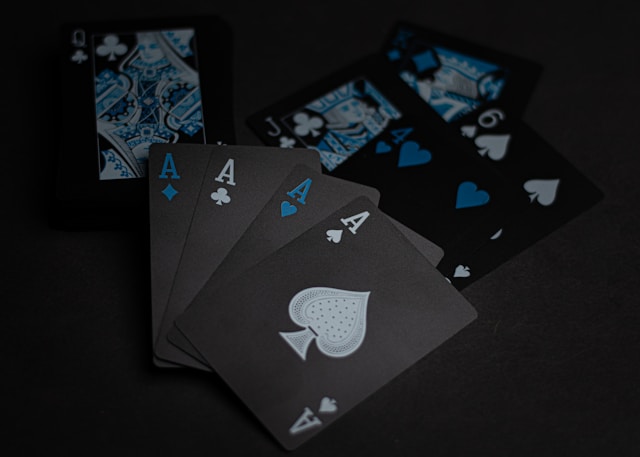Poker, the quintessential card game of skill, strategy, and nerve, has captured the hearts and minds of players worldwide. Its allure lies in the thrill of outsmarting opponents, reading their tells, and making calculated decisions under pressure. Central to the poker experience are the chips, serving as tangible markers of monetary value and adding an element of excitement to every hand dealt.
But what happens when the chips are down, and you find yourself without these essential tools? Fear not! In this guide, we’ll explore the art of playing poker without chips, opening up a realm of possibilities for card enthusiasts everywhere. While chips may traditionally be the currency of the game, their absence invites creativity and adaptability, challenging players to rely on their wits and intuition to navigate the virtual poker table.
From finding substitutes for chips to assigning values and mastering the psychological nuances of the game, playing poker without chips offers a fresh perspective on this timeless pastime. So gather your cards, sharpen your strategy, and prepare to embark on a unique poker journey where the stakes are high, even without the chips.
1. The Substitute Shuffle: Finding Alternatives to Chips
When chips are scarce, creativity comes into play. Explore household items that can serve as substitutes for traditional poker chips. From coins to buttons, even pieces of paper, the possibilities are endless. Just ensure that whatever you choose is distinguishable and easy to stack and handle.
2. Counting the Stakes: Assigning Values to Substitutes
With substitutes in hand, it’s time to assign them values. Determine the monetary equivalents of your chosen items and establish ground rules for betting and raising. Whether it’s assigning a dollar value to each coin or using a point system, clarity is key to maintaining the integrity of the game.
3. Mind Over Matter: Embracing the Mental Game
Playing poker without chips places a greater emphasis on the mental aspect of the game. Without physical chips to gauge your stack, hone your ability to keep track of your virtual bankroll mentally. Sharpen your focus, remain observant of your opponents’ behavior, and adapt your strategy accordingly.
4. The Art of the Bluff: Mastering Psychological Warfare
In the absence of tangible chips, the art of the bluff becomes even more potent. Use subtle cues and psychological tactics to deceive your opponents and gain the upper hand. From strategic betting patterns to controlled body language, mastering the art of the bluff can turn the tide of any poker game.
5. Adapt and Overcome: Navigating Variations and House Rules
Every poker game is unique, and playing without chips opens the door to a myriad of variations and house rules. Embrace the opportunity to explore different formats, from cash games to tournaments, and adapt your strategy accordingly. Communicate with your fellow players to establish clear guidelines and ensure a smooth and enjoyable gaming experience.
6. Friendly Competition: Fostering Camaraderie and Sportsmanship
Above all, remember that poker is a game meant to be enjoyed with friends and fellow enthusiasts. Whether you’re playing for fun or honing your skills for serious competition, prioritize camaraderie and sportsmanship. Celebrate victories graciously and learn from defeats with humility, fostering a spirit of friendly competition that keeps players coming back for more.
7. The Final Showdown: Reaping the Rewards of a Chipless Victory
As the game draws to a close and the final hands are revealed, savor the sweet taste of victory or graciously accept defeat. Remember, in poker, winning isn’t just about the chips—it’s about the thrill of the game, the camaraderie of fellow players, and the memories made along the way. So gather your substitutes, sharpen your wits, and embark on a poker journey unlike any other—where chips are optional, but the excitement is guaranteed.

